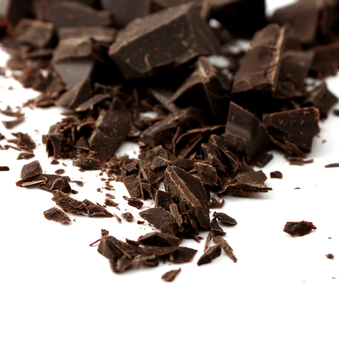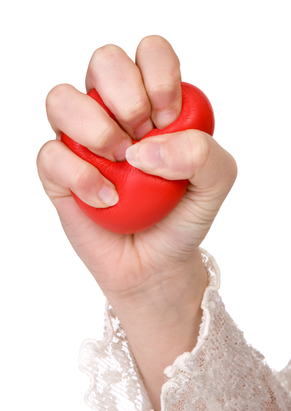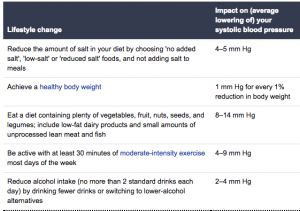GUYSIDE: salty talk about your diet
 I’ve been keeping an eye on my blood pressure these days. With a family history of hypertension, it just makes sense. And so far, my results are good. A while ago, I stopped at a local pharmacy and used their automated machine and saw a couple of readings heading into the high range. But more accurate readings have put it further down in the normal range, so that’s good.
I’ve been keeping an eye on my blood pressure these days. With a family history of hypertension, it just makes sense. And so far, my results are good. A while ago, I stopped at a local pharmacy and used their automated machine and saw a couple of readings heading into the high range. But more accurate readings have put it further down in the normal range, so that’s good.
But when I looked at my profile for hypertension risk factors, I was struck that there wasn’t a great deal I could do. The major risk factors for hypertension, according to the Mayo Clinic, are:
- Age. (Hypertension is more common in men around 45 or so, and becomes more common in women around 65)
- Race. (High blood pressure is particularly common among blacks)
- Family history.
- Being overweight or obese.
- Not being physically active.
- Using tobacco.
- Too much salt (sodium) in your diet.
- Too little potassium in your diet.
- Too little vitamin D in your diet.
- Drinking too much alcohol.
- Stress.
I do pretty well on most of these. But of the ones I can control, the one about sodium sticks out. As a man and a lover of food that I KNOW is bad for me, I know that I can be the author of my own hypertensive misfortune. Burgers, fries, onion rings, chicken wings — it would be foolish to pretend they don’t have a lot of sodium in there. But there are a ton of foods out there that you wouldn’t expect to have high sodium levels.
We often have pizzas on naan bread for a quick and easy weekday meal. On top, prosciutto, pears, brie, and basil. I knew the prosciutto would be high in sodium — after all, it’s a cured meat. But the naan bread itself has a surprising amount of sodium. Between those two ingredients, one naan pizza is likely delivering more than half my daily allowance of sodium.
Chicken breasts can be injected with brine during processing, increasing their sodium content drastically. A slice of process cheese might have 20% of your daily allowance of sodium!
If you have french fries, you expect them to be salty. But if you add a tablespoon or two of ketchup, you’re looking at 400 mg of sodium just in that!
And none of this counts restaurant or takeout food, which can be extremely high in sodium. You can see just how easy it would be to end up with more than your roughly 2,500 mg of sodium per day:
- 350 mg: a bowl of Raisin Bran.
- 870 mg: a bagel and cream cheese
- 1220 mg breakfast
- 1600 mg: 100 grams of deli ham on white bread with mustard.
- 1600 mg lunch
- 393 mg: baked chicken breast
- 418 mg: baked potato
- 460 mg: cup of canned peas
- 1271 mg supper
- 744 mg: 1/2 cup of salsa
- 420 mg: 24 tortilla chips
- 1164 mg snack
That’s a whopping 5255 mg of sodium, more than twice the recommended amount in a day, without a single shake of your salt shaker, without eating out, and with lots of things that seem healthy at first glance. (Sodium figures from the Fat Secret website)
You can’t change your age, your race, or your family history of hypertension. But if you start to track things like sodium, you do see where you can help prevent hypertension, or if you have it, improve it without resorting to drugs. And that’s a good thing.
(Pretzel photo is a CC-licenced image from Flickr user Jenn Durfey)
Read MoreBe still my heart: stress, women and heart disease
Heart disease. I have been writing about it for years. And the news doesn’t get much better. According to the American Heart Association, heart disease kills approximately one woman every minute. More importantly, despite the great strides that have been made on the research, treatment and even education fronts, 90% of women in the U.S. have at least one risk factor for heart disease. Yikes!
Allow me to share one of the greatest risk factors, one that you might not be aware of:
Mental stress.
If you are a regular reader of Flashfree, you know that stress can affect mood, sexual desire and symptoms of menopause. And not surprisingly, the association between mental stress and heart disease is well established. However, new study findings published online in the Journal of the American College of Cardiology suggest that mental stress might actually take a greater toll on women’s hearts than on men’s.
In the study (which had originally been designed to assess the impact of an antidepressant on stress-induced heart issues,)male and female participants were exposed to mental stress exercises, including one designed to induce anger. The researchers also evaluated factors that would indicate how the well or poorly the heart was functioning in relation to stress including blood pressure and heart rate as well as reduction in blood flow. Mind you, of the 310 people participating in the study, only 54 were women and this small sample does create certain limitations when it comes to interpreting the findings. However, the report shows that during times of stress, 57% of these women experienced reduced blood flow to their hearts, versus 41% of men. This is not to say that the men dodged the bullet; indeed, men had greater increases in traditional measures such as blood pressure.
Another important finding was the impact of mental stress; women tended to express more negative emotions and experienced a decline in the positive. And, the researchers say that they also observed differences in how the platelets behaved. In the bloodstream, platelets are responsible for stopping bleeding and in aid in clotting. However, they can also clump together to block the flow of blood when the vessels are damaged. In response to mental stress, not only did the blood platelets react more strongly and clump to a greater extent in women than in men, but the women had roughly twice the odds of this occurring.
The researchers say that the findings highlight gender differences in heart disease risk but also suggest that available risk prediction tools may fall short; this is because they don’t measure the full spectrum of mental-stress induced physical and psychological changes. What immediately comes to mind is the recent app launched by the North American Menopause Society, which in addition to promising a more seamless exchange of information and resources between provider and patient, also offers access to cardiovascular risk assessment. That aside, it’s definitely time to change the paradigm. Recent data suggest that death rates from heart disease in women have declined BUT the number has exceeded that of men for the past 20 years. By teasing out the why and what, there may be an avenue to change the narrative. Today, that avenue is mental stress.
The key message is to to be mindful of stress before it stills your heart and steals your life.
Read MoreGuyside: feeling tension over hypertension
Skinning the cholesterol cat
 It’s difficult to pin down the reasons underlying an increasing risk for heart disease as women age. Menopause in particular is associated with a rapid increase in blood LDL cholesterol and triglycerides levels and declines in HDL cholesterol levels. And, while some researchers claim that hormones are at-play, others suggest that it is increased risk is associated with a gradual decline of cells that act to repair and replenish circulation. Regardless, it is well accepted that high levels of LDL can increase the risk of atherosclerosis and that even early signs of high cholesterol levels should raise a few red flags in the health department.
It’s difficult to pin down the reasons underlying an increasing risk for heart disease as women age. Menopause in particular is associated with a rapid increase in blood LDL cholesterol and triglycerides levels and declines in HDL cholesterol levels. And, while some researchers claim that hormones are at-play, others suggest that it is increased risk is associated with a gradual decline of cells that act to repair and replenish circulation. Regardless, it is well accepted that high levels of LDL can increase the risk of atherosclerosis and that even early signs of high cholesterol levels should raise a few red flags in the health department.
Most recently, the American Heart Association and American College of Cardiology issued controversial recommendations that statins should be used in anyone who has a greater than 7.5% chance of having a heart attack or stroke or developing heart disease over the following 10 year period. However, lifestyle modification, i.e. adopting a healthy diet, engaging in regular physical activity, controlling diabetes and high blood pressure and weight loss may be an effective answer in some people. For others, there is new evidence suggesting that the Chinese herbs Danshen (Salvia miltiorrhiza) and Gegen (Radix pueraidae), aka D&G, may help to lower LDL, improve the functioning of the lining of the heart and lower carotid intima thickness (the thickness of the two innermost walls of the artery). These two herb roots are more commonly known as red sage and kudzu, respectfully, and previously clinical trials have demonstrated their potential for control of heart pain and other cardiac symptoms.
Traditional Chinese Medicine is often disputed in allopathic medicine and many practitioners believe that its role in disease is unproven. Nevertheless, the 12-month, randomized controlled study among 165 postmenopausal women who took either daily D&G or placebo may put some of these challenges to rest. All of the study participants had what is considered borderline high cholesterol at the study’s start. And, while D&G had no discernible impact on blood pressure, women taking D&G experienced significant declines in carotid intima-media thickness compared to women taking placebo. This benefit appeared to be even greater after more than six months of treatment.
Additionally, the researchers reported a ‘remarkable’ decline in both LDL and total cholesterol levels compared to placebo (6.9% versus 3.2% LDL, 5.8% versus 3.4%, total cholesterol) even though these figures did not reach statistical significance. They also found that when they evaluated quality of life, a significant decline in mental health scores was observed in the placebo group while a significant increase in general health scores was observed among women taking D&G.
Almost as important, no significant side effects were reported.
The researchers say that they cannot identify the reasons underlying these benefits and that molecular studies are needed to explain the biology underlying the improvements. However, it is clear from this small study that there a different ways to skin the cat called high cholesterol and that statins aren’t the only game in town.
Stay tuned!
Read MoreNewsflash! Two a day diet drinks habit might be harming your heart!
Are you a fan of diet drinks? Do you consume them because they help to keep overeating at bay? Newsflash: you may want to reconsider how diet drinks are actually affecting your health.
Ironically, despite their promise to help you lose weight (and in turn, become healthier) previous studies have linked diet drink consumption to weight gain and an increased risk for metabolic syndrome. Now, researchers presenting at the American College of Cardiology Annual Meeting report that postmenopausal women who consume two or more diet drinks daily may up their risk for cardiovascular disease by as much as 30%. What’s more, the data suggest that the risk from dying from a heart-related event (e.g. heart attack or stroke) might be upped by as much as 50%.
Dr. Ankur Vyas of the University of Iowa evaluated reported dietary habits by almost 60,000 women from the Women’s Health Initiative Observational Study, who at the study’s start, had no signs of preexisting heart disease. While the majority consumed up to three diet drinks a month, about 5% of the women reported drinking two or more daily. And of these women, 8.5% developed heart disease or a composite of different events such as a heart attack or stroke.
The researchers note that increases in these events also occurred in the other groups but in fewer women, so for all intents and purposes, the upped risk is a modest one. Still, even when they factored in other things that might cause heart disease such as BMI, smoking or high cholesterol, women who drank the most diet beverages still had a greater likelihood of developing a heart related event or dying from such event.
It’s too early to say for certain whether or not these findings will bear out closer scrutiny. And, increasingly, experts recommend that people choose the real deal over artificial. However, sugar sweetened beverages may soon be blacklisted across the board. Word to the wise: water trumps diet drinks every time.
Read MoreFriday NewsFlash: more loco for cocoa, the ‘why’s’ have it!
 Guess what? Research presented at this week’s American Chemical Society Meeting in Dallas appears to demonstrate the reasons why dark chocolate might be good for your health: microbes in your gut.
Guess what? Research presented at this week’s American Chemical Society Meeting in Dallas appears to demonstrate the reasons why dark chocolate might be good for your health: microbes in your gut.
Like many writers, I’ve been reporting on chocolate for some time now and yet, while theories have focused on flavanols, neither cause and effect, or the exact reasons for benefits have been clear. However, Lousiana State University scientists say that good microbes in your gut – lactic acid and a type knowns Bifedobacterium – actually breakdown the antioxidant properties in cocoa (e.g. cathechin and epicatechin), ferment it and produce smaller molecules that are anti-inflammatory. In other words, they are believed to help reverse the body’s low-grade inflammation that leads to heart attack, stroke and other heart-related conditions. The discovery came when the scientists exposed three different cocoa powders to simulated digestion and then fermented the non-digestable materials.
Another related finding is that when prebiotics — carbohydrates that are found in foods like raw garlic or cooked whole wheat flour — are combined with cocoa, namely the small amount of fiber in cocoa, they become like worker bees to further help break down the antioxidant compounds.
Now that we have the why, let’s hope that researchers confirm an actual cause and effect. Right now, they can only confirm an association. But having your dark chocolate and eating it too may be one of the best things you can do for your heart health, at least, in moderation.
Read More








